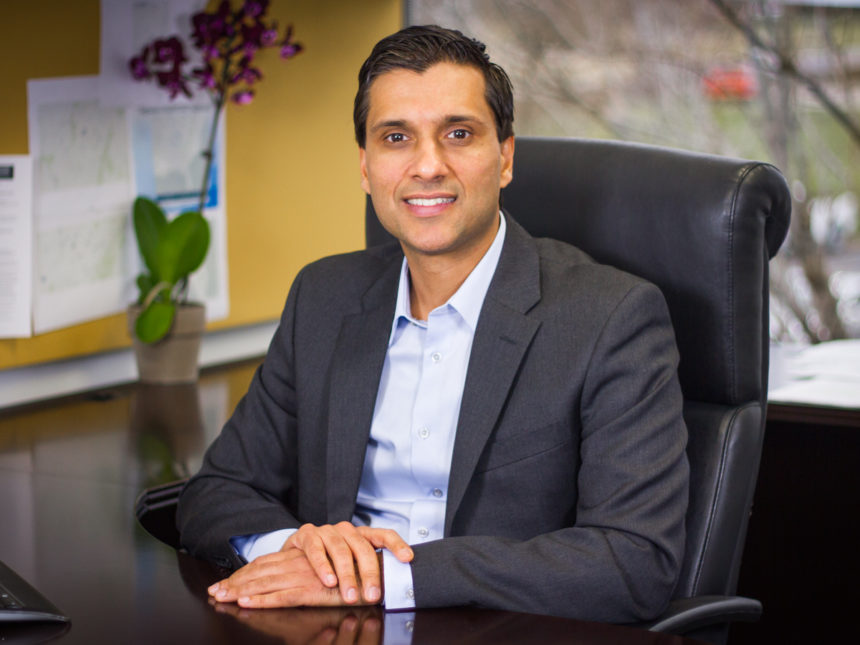
I traveled to the West Coast for winter break with my family. The trip concluded with a visit to Las Vegas. The idea was to enjoy the grandeur of the amazing gambling enterprises and to see the legendary David Copperfield in action—a bucket list item for my 12-year-old son.
As expected, Mr. Copperfield did not disappoint, particularly when he produced a humongous spaceship out of thin air. He also managed to amaze the audience when he apparently made a paper ball dance with his “mind power.” For me, the most fascinating act was when he correctly predicted a series of numbers written down by few audience members; a fantastic illusion that entertained hundreds in the audience.
As a leader in healthcare, I could use the ability to predict the future. The volume to value evolution of the healthcare system, and the accompanying regulatory changes have brought significant unpredictability for healthcare systems. No system has been more affected than the post-acute system, particularly the skilled nursing facilities.
Last year, the SNF business brought a record-low profit margin. If the saying, “no margin no mission” holds any water, we are risking the future of our senior care. It is forecasted that record seniors will be requiring post-acute care in the upcoming years. The care of these seniors will need to be funded well to bring them the quality they deserve. The complexity of the care needed is rising and significant funding is needed to fund the staff for proper training, but more importantly, for adequate staff compensations.
During my stay in Vegas, my wife and I visited some of the largest casinos. The vastness and grandness of these organizations was mind-blowing. Bellagio, MGM Grand, Cosmopolitan, and the Venetian all offered a unique environment and intrigue, capturing everyone’s attention. There was no lack of lavishness and style. The buffet in one of these hotels cost more than $70 per person, and had a wait of more than 90 minutes, as it offered hundreds of dishes on its menu. And then, there were the slot machines!
Hardly a slot machine was available as people of all ages and backgrounds seemed to be generously satiating their gambling urges. The businesses appeared to be running strong with innumerable servers and other staff members running around to meet the needs of the customers. The environment seemed to be of relaxation, happiness and most notably of abundance.
It was quite evident that none of these enterprises were at the verge of a collapse. With the help of adequate regulatory frameworks and a well-funded business model, I concluded that the gambling business will continue to thrive, exceeding the financial objectives of their funders and meeting the expectations of their customers.
Even without the ability to predict the future, I can assure you that many skilled facilities will be closing this year. They will be forced out of business not because they are being managed by untalented leaders or by lazy operators, or because they intend to swindle or harm their customers, but many of them will close because they have been dealt an impossible hand.
With the recent healthcare dynamic where sick patients are discharged sooner from hospitals to skilled facilities, and the increased expectations of care from these facilities without any reasonable increase in reimbursements, along with a regulatory complexity that is only second to nuclear industry, the deck of cards is stacked against them like never before. Add to this, lack of available staff with a forecast in historic nursing shortage in this setting, there seems to be merely a faint light at the end of the tunnel.
And then there are other social pressures. The dark clouds of litigation over frivolous cases, and overly negative media reporting is adding to the gloom. In Kentucky, SNFs have to accrue thousands of dollars per bed to defend against and settle lawsuits. Anyone who has been a caregiver for a frail relative or friend in the community knows that many negative outcomes cannot be prevented.
SNFs that are neglectful of their responsibilities need to be held accountable. But when the system fails to recognize the above and beyond efforts of majority of the committed teams and seem to slam the whole industry over a smaller percentage of negative outcomes, it results in serious discouragement and dissatisfaction. The SNF frontline teams, both clinical and operational, are dealing with historic burnout. It is no surprise there is lack of both social and financial support for their hard work.
It is critical that we, as a society, rethink our strategy in regard to the support of our skilled facility providers.
Assuring the highest quality of care for our seniors is a must, as sooner or later all of us will need their service for ourselves or for our loved ones. Just tightening the regulatory frameworks and inadvertently creating an air of blame and negativity will only diminish enthusiasm and drive the talent away.
I enjoyed my trip to the casinos. I even got to double my twenty dollars, at least for a while before facing an inevitable negative outcome of losing it all to the dealer. I want the casinos to do well as they bring value to the majority of their clients, if not financially, then at least recreationally.
But I also desperately want the SNFs to succeed. It is high time that we reshuffle the deck of cards, aiming for a fairer hand for SNF providers, otherwise I can safely predict that improving quality of care will continue to be nothing more than a fancy illusion.
Arif Nazir, M.D., C.M.D., is Signature HealthCare’s Chief Medical Officer.





